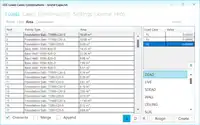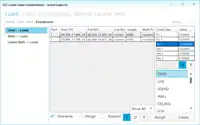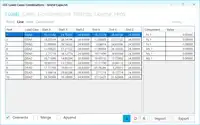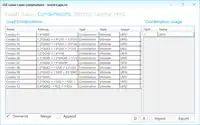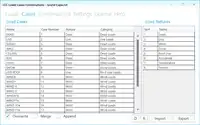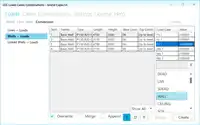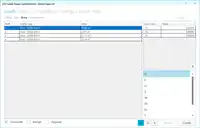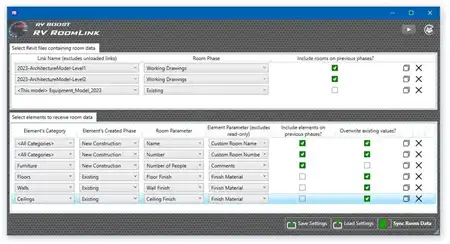About this app
"LCC - Loads Cases Combinations" is a powerful Revit plugin designed to streamline the management of structural loads, load cases, and combinations for engineers working on BIM-based projects. This add-in provides an intuitive interface for creating, importing, exporting, and converting loads, ensuring seamless integration into your structural analysis workflow. With LCC, users can efficiently apply point, line, and area loads, convert model elements into loads, and define load cases and combinations, all of which enhance accuracy and productivity in structural design.
Why Choose LCC?
In Revit, managing structural loads and defining load cases and combinations can be complex and time-consuming, often requiring manual input. LCC bridges this gap by offering a centralized solution to handle load-related tasks directly within Revit, reducing errors and saving valuable time in the design-to-analysis process. Its key features make it an essential tool for any engineer working on structural projects in Revit.
(Image by: {seller-name})
Key Features of LCC - Loads Cases Combinations
Here are some of the key features that make LCC a must-have plugin for structural engineers using Revit:
- Import and export point loads
- Import and export line loads with uniform and non-uniform distributions
- Create uniform area loads on elements like floors and foundations
- Convert model lines into uniform or non-uniform line loads
- Convert non-structural walls into uniform line loads along their baseline
- Convert walls from linked Revit models into uniform line loads in the host model
- Import and export load cases (e.g., DEAD, LIVE)
- Import and export load combinations (e.g., 1.35 DEAD + 1.5 LIVE)
- Highlight elements in Revit to verify load placement
- Manage existing loads with Overwrite, Merge, or Append options
- Use data tables to view and manage loads, cases, and combinations
- Automate the load application and conversion to reduce manual errors
(Image by: {seller-name})
How LCC Works
LCC simplifies the structural load management process by allowing users to:
- Create or import loads (point, line, area) directly in Revit, or convert model elements (lines, walls) into loads
- Define load cases and combinations using an Excel-compatible import/export system
- Assign and apply loads with options like Overwrite, Merge, or Append to manage existing data
- Highlight elements in Revit to verify load placement and finalize the structural setup
By using LCC, engineers can streamline their workflow, boost productivity, and ensure accuracy in their structural designs within Revit.
(Image by: {seller-name})
Conclusion
In conclusion, "LCC - Loads Cases Combinations" is a valuable Revit plugin that simplifies structural load management for engineers working on BIM-based projects. With its intuitive interface, powerful features, and seamless integration with Revit, LCC is a must-have tool for anyone looking to enhance their efficiency and accuracy in structural design. By automating load application and conversion tasks, LCC saves users time and reduces errors, ultimately leading to better project outcomes. I highly recommend giving LCC a try to experience the benefits it brings to your structural analysis workflow.
(Image by: {seller-name})
(Image by: {seller-name})
(Image by: {seller-name})
(Image by: {seller-name})
(Image by: {seller-name})
